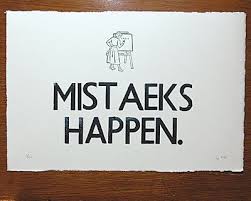Pre retirement
Loaning or providing financial assistance to members
RULE: You can’t use your superfund to lend money or provide financial assistance to a member or relative, either directly or indirectly.
One major mistake with an SMSF is for members to take money out of the fund to pay for personal or business expenses. Often, members are unaware they’re withdrawing money from their SMSF. An important note to remember is financial assistance can include something as simple as guaranteeing a loan – money doesn’t have to be removed from the fund.
HOW TO AVOID THIS MISTAKE: Make sure you completely understand the rules related to your self-managed superfund. If you’re concerned the transaction may be problematic, contact your Initiative adviser first.
Investments not held in the name of the superfund
RULE: Assets of a superfund must be registered in the name of the individual trustees or the corporate trustee (depending on your fund setup).
Ensuring SMSF investments aren’t getting mixed up with personal investments seems like such an avoidable mistake, however it’s very common. Whilst investments must be in the name of the fund, this also includes outgoings of the fund such as insurance policies. For example, the superfund is required to be the policy holder and the fund member/s are understandably the ones insured.
HOW TO AVOID THIS MISTAKE: If this is not possible, supporting documentation that proves the assets belong to the fund, such as declarations of trust or trustee minutes should be maintained.
In-house Assets
RULE: Your self-managed superfund cannot invest more than 5% of its holdings in in-house assets. These assets can include businesses owned by a fund member or an asset leased back to a related party (business premises are an exception).
It is crucial to ensure your SMSF follows the many rules relating to investments. Most of these rules apply when a person, company or trust has a significant link with the fund. This includes members, trustees, any of their relatives and companies or trusts they control. If the fund makes a loan, invests in or leases assets to a related party, penalties may apply, and the fund may possibly lose its tax concessions.
Do not use fund assets or money for personal or business purposes unless it is specifically allowed by the superannuation regulations. For example, it is possible for the fund to lease a commercial property to related parties providing it is on a commercial basis and permitted by the fund’s investment strategy.
HOW TO AVOID THIS MISTAKE: When in doubt, leave it out. Always seek professional advice before investing in something you may be linked to.
Post Retirement
Taking the minimum pension
RULE: If you’re in retirement phase of your super or receiving a transition to retirement pension, it’s imperative you maintain your pensions properly to avoid losing your tax concessions.
Unexpected errors can occur, resulting in small underpayments of the pension. It is possible to make a catch-up payment to get things on track and not impact on tax concessions for the fund.
HOW TO AVOID THIS MISTAKE: Prevention is key, and arrangements should be made to ensure the minimum pension is paid automatically before 30 June each year.
Author
Elicia McWilliams




